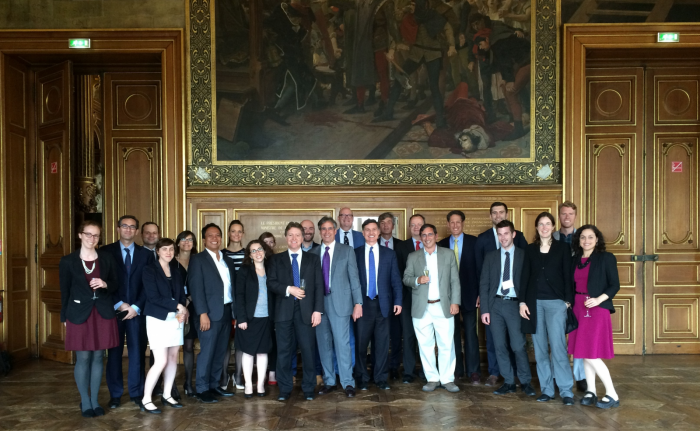Yale Climate Change Dialogue
Meeting of the Climate Change Dialogue team in Paris’s City Hall, May 2015
For decades, the global response to climate change has centered on a nation-state-dominated framework of targets and timetables for emissions reductions driven by top-down mandates. This 20th Century architecture has focused too much on goals and not enough on actions to mitigate the risks of climate change. Simply put, it has not produced the results needed to address the build-up of greenhouse gas emissions in the atmosphere.
Yale Climate Change Dialogue at COP21
Meeting of the Climate Change Dialogue team in Paris’s City Hall, May 2015
21 Solutions to Protect Our Shared Planet
YCELP, in partnership with the City of Paris, contributed to the development of a report, 21 Solutions to Protect Our Shared Planet, launched on December 4 at the Local Leaders Summit, an event that attracted hundreds of local leaders from around the world, during the 21st Conference of the Parties in Paris. Highlighting 21 solutions developed by cities and subnational governments from around the world, the report outlines current and future best practices that demonstrate how cities and regions can successfully:
- Adapt to climate change;
- Implement local low-emission solutions that curb greenhouse gas emissions;
- Engage all levels of government, civil society, and the private sector in the quest for innovative climate solutions.
Paris City Hall Declaration: A Decisive Contribution to COP21
YCELP is proud to support the Paris City Hall Declaration signed by local leaders from the Local Leaders Summit, which reaffirms the commitment of cities’ and regions’ leaders to tackle climate change.

